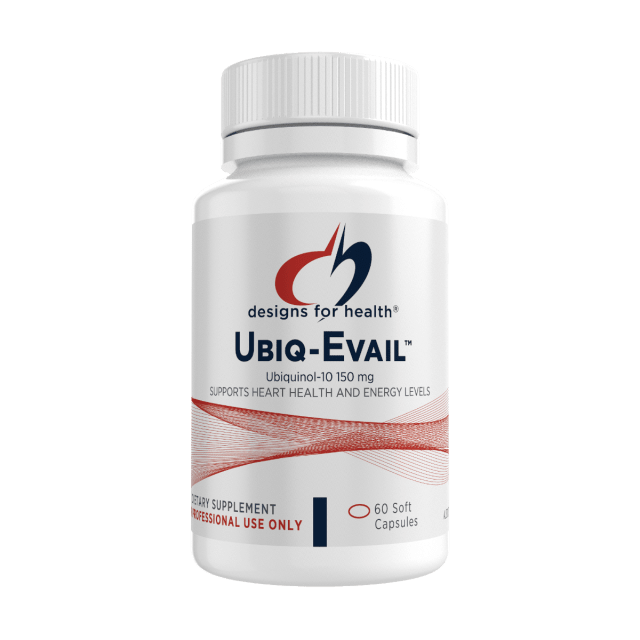To help us enhance our site, we use cookies for analytics; your data is never sold.


Designs For Health Ubiq-Evail
Please log into your patient account below, otherwise you can create an account.
Ubiquinol-10 150mg
Designs For Health Ubiq-Evail
Ubiquinol-10 150mg
Supports Heart health and Energy Levels
Size: 60 Capsules Servings Per Pack: 60 Serves
Designs For Health Ubiq-Evail Summary:
- Contains 150 mg Kaneka Ubiquinol, a fermented and highly bioavailable form of reduced CO Q10
- Utilises Evail Technology for optimal absorption
- Supports energy production and relieves fatigue
- Maintains cardiovascular health and function
- Supports heart and blood vessel health
- Antioxidant: reduce free radicals formed in the body
Designs For Health Ubiq-Evail No Added: Gluten, Dairy, Soy or nuts
Designs For Health Ubiq-Evail AUST L 308623
Content Restricted
More information is available in this section to approved patients.
Online ordering is available 24/7.
Your order may ship in multiple packages to ensure they reach you as soon as possible.
If any of your products are on backorder and you are within Australia, these items will ship separately as soon as they become available at no additional cost. For international orders, your order will be sent in one package when all stock is available.
The stock availability dates are provided by our suppliers, and we endeavour to keep this information as up to date as possible on the product page.
| Within Australia | |
| Orders over $150 | $10 Express * |
| Orders under $150 | $15 Express * |
All values are Australian dollars, incl. GST.
* Deliveries to PO Boxes will be shipped standard, 2-5 days transit. Cold goods cannot be shipped to PO Boxes.
For more information, including estimated transit times and international pricing, see our Shipping page.
